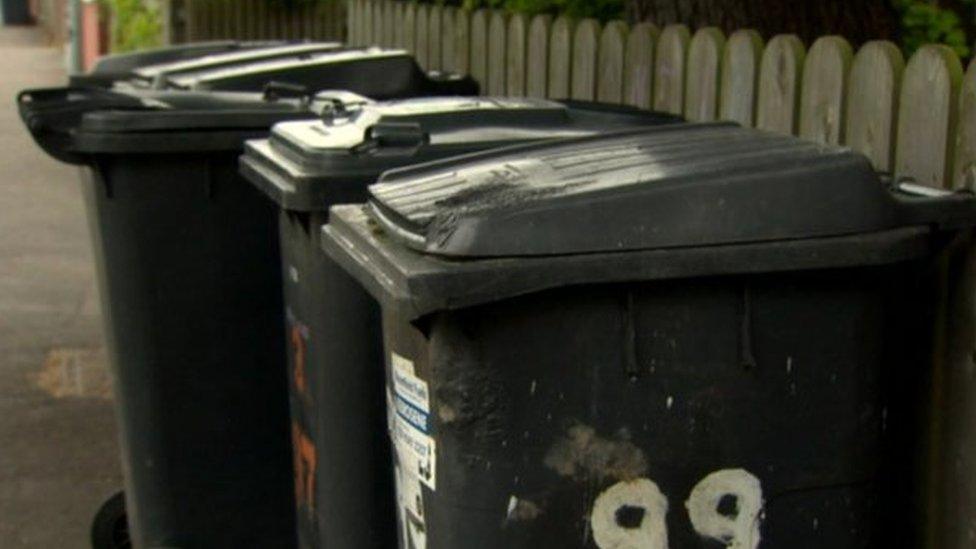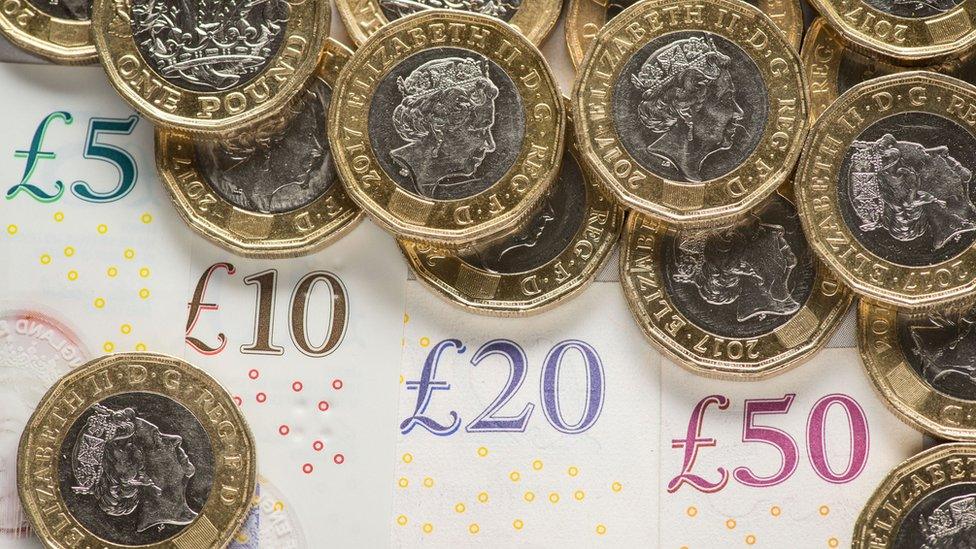Household rates rise in two more Northern Ireland councils
- Published
- comments

The money generated by rates is used to pay for public services, with bills decided against the value of a property
Two more of Northern Ireland's 11 councils have agreed rates increases for the 2023-24 financial year.
Mid Ulster District Council agreed to increase household rates by 7.3% while Newry, Mourne and Down District Council agreed a rise of 5.99%.
Last week Belfast City Council agreed to increase household rates by 7.99%.
The money generated by rates is used to pay for public services, with bills decided against the value of a property.
The Mid Ulster District Council rate rise of 7.3% was agreed at a meeting on Monday evening.
The council also revealed cuts or changes to some of its services due to budget problems. They include:
the closure of recycling centres in Castledawson, Coalisland, Draperstown, Fivemiletown and Moneymore
the end of grass cutting along road verges in the council area
the introduction of car parking charges in Cookstown
DUP councillor Paul McLean said his party made a counter proposal of 4.9% but Sinn Féin proposed 7.3% which was seconded by the SDLP.
"We proposed savings of £1.8m which equated to bringing the rates [rise] down to 4.9%," he said.
"It might not seem a lot in the eyes of people but for families that are struggling and households that are struggling finding that extra £20 or £30 or £40 per year is a big ask."
Sinn Féin councillor Cathal Mallaghan, who proposed the 7.3% rise, said it was due to the "cost of energy, labour shortages and interest rates".
He also said the "decision two years ago to strike a 0% increase in the rate is still something we are paying for now".
'Difficult situation' in Newry, Mourne and Down
Newry, Mourne and Down District Council chairman Michael Savage said its rates increase - agreed on Monday night - reflected the "difficult situation" the authority was facing.
Energy bills and increased staff wages were contributing factors, he added.
"Overall we are facing increased costs of £11m in the coming financial year," he said.
Mr Savage said all 11 councils in Northern Ireland were facing similar economic challenges.

Rates bills are due to be posted to households from April
Setting a rate took months and the initial rate under consideration had been more than halved, he explained.
The meeting on Monday night was delayed as legal advice was presented by a senior official "urging extreme caution" on the use of reserve money held by the council to reduce the rates increase.
Social Democratic and Labour Party (SDLP) councillor Gareth Sharvin questioned the council chief executive Marie Ward about that in light of the cost-of-living crisis.
"This council now has a surplus totalling £35m. We are supposed to have a sufficient surplus - an excessive one is not needed," said Mr Sharvin.
"Can we not use our reserves to offset costs and strike a rate of 3.49%?"
Ms Ward said all council capital projects were under review as the reserves were "already being used and being significantly reduced".
Sinn Féin councillor Barra O'Muiri said the rise of 5.99% was "the lowest rate that we can safely go down to".
"It would be impossible to go down any further without jeopardising our future capital programme," he said.
"When we had the dispute over employee wages, we were able to deal with it swiftly and avoided any strikes and that was due to our reserves.
"The rate of 5.99% is one of the lowest of all councils."
A vote on the rate was carried by a majority, with the Democratic Unionist Party (DUP) and SDLP both abstaining.
More councils expected to increase rates
Domestic rates are made up of a regional rate - usually set by the Northern Ireland Assembly - and a district rate set by Northern Ireland's councils.
In the absence of a sitting assembly at Stormont, the UK government's Northern Ireland Office will set the regional rate.
BBC News NI understands that a regional rate increase will be struck ahead of bills being sent out in April.
The regional rate covers services such as hospitals and roads maintenance, while the district rate covers services such as leisure centre facilities and waste management.
Other councils are expected to announce their 2023-24 rates in the coming weeks.
- Published18 January 2023

- Published9 July 2021
